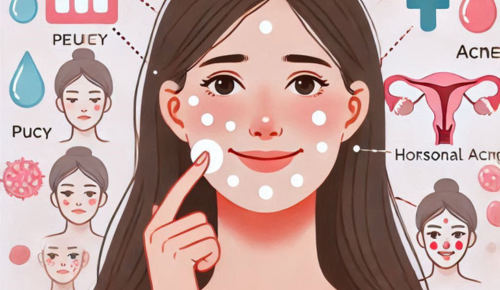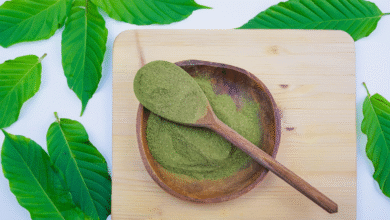
Hormonal acne can be a frustrating and persistent skin condition that affects individuals of all ages. Triggered by fluctuations in hormones, it often appears as deep, painful breakouts on areas like the jawline, chin, and cheeks. Managing hormonal acne requires a targeted approach that combines effective skincare, lifestyle adjustments, and, in some cases, professional treatments. Here’s a comprehensive guide to keeping hormonal acne under control.
What Causes Hormonal Acne?
Hormonal acne occurs when changes in hormone levels, such as during puberty, menstruation, pregnancy, or menopause, lead to increased oil production. This excess oil can clog pores, creating an environment where acne-causing bacteria thrive. Other contributing factors include:
- Stress: Elevates cortisol levels, exacerbating acne.
- Diet: High-sugar and high-dairy diets may trigger breakouts in some individuals.
- Genetics: A family history of acne increases susceptibility.
Skincare Tips for Hormonal Acne
- Use a Gentle Cleanser:
- Start with a face cleanser product that removes excess oil and impurities without stripping the skin. Look for ingredients like salicylic acid or benzoyl peroxide.
- Pro Tip: Use a foaming or gel-based cleanser for oily skin types.
Incorporate Acne-Fighting Ingredients:
- Retinoids: Promote cell turnover and unclog pores. Use at night for best results.
- Salicylic Acid: Penetrates deeply to clear pores and reduce inflammation.
- Niacinamide: Calms redness, regulates oil production, and improves skin texture.
Hydrate with Non-Comedogenic Products:
- Avoid heavy moisturizers that may clog pores. Opt for lightweight, oil-free options to keep skin hydrated without contributing to acne.
Apply Sunscreen Daily:
- Protecting your skin from UV damage is crucial, especially when using acne treatments that can make skin sensitive to the sun. Choose a non-comedogenic sunscreen with SPF 30 or higher.
Avoid Over-Exfoliation:
- While exfoliation helps remove dead skin cells, overdoing it can irritate the skin and worsen acne. Limit exfoliation to 1-2 times per week.
Lifestyle Adjustments
- Maintain a Balanced Diet:
- Reduce intake of sugary and processed foods, as these can spike insulin levels and aggravate acne.
- Include anti-inflammatory foods like salmon, avocados, and leafy greens.
Manage Stress Levels:
- Practice mindfulness techniques such as yoga, meditation, or deep breathing to reduce stress-related breakouts.
Stay Hydrated:
- Drinking plenty of water helps flush out toxins and maintain healthy skin.
Get Enough Sleep:
- Poor sleep can disrupt hormone balance, leading to increased acne. Aim for 7-9 hours of quality sleep per night.
Professional Treatments
If over-the-counter solutions and lifestyle changes aren’t enough, consider consulting a dermatologist for advanced treatments:
- Oral Contraceptives: Regulate hormone levels and reduce acne in women.
- Spironolactone: Helps reduce oil production by blocking androgen receptors.
- Chemical Peels: Exfoliate the skin and reduce the appearance of acne scars.
- Blue Light Therapy: Targets acne-causing bacteria without harming the skin.
Common Mistakes to Avoid
- Picking or Squeezing Pimples:
- This can lead to scarring and further inflammation.
Skipping Moisturizer:
- Even oily skin needs hydration to maintain a healthy barrier.
Using Harsh Products:
- Avoid products with high alcohol content or abrasive scrubs, as they can irritate the skin and exacerbate acne.
Inconsistent Routine:
- Acne treatments require consistency and patience. Stick to your routine for at least 6-8 weeks to see results.
Managing hormonal acne requires a holistic approach that combines effective skincare, healthy habits, and professional guidance when needed. By understanding the triggers and tailoring your routine to your skin’s needs, you can achieve clearer, healthier skin. Stay consistent, and don’t hesitate to seek professional advice for personalized solutions. Use quality cosmetics and women’s shoes and perfumes.




